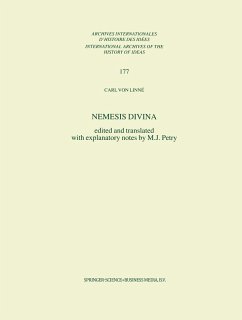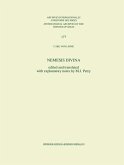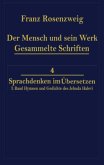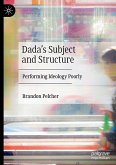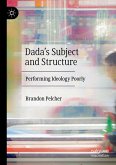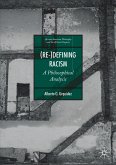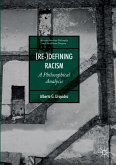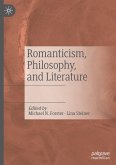Linnaeus' mature theodicy, his attempt to reconcile the suffering and evil of the world with the omnipotence and goodness of God, is presented in a condensed form in the final editions of his Systema Naturae (1758/68). In this comprehensive compendium of our knowledge of the three great realms of organic nature, he outlines the significance of the sub-conscious, social awareness and theological orientation in the spiritual life of man, and indicates how fate, fortune, and Providence interrelate within his conception of the Deity.
In the Nemesis Divina this general undertaking is developed into an `experimental theology', which is exactly analogous to Linnaeus' work in the natural sciences, in that it involves the collecting and classifying of concrete and carefully described case-studies. He never prepared the manuscript for publication, however, and for many years it was regarded as lost, and it is only very recently that any attempt has been made to publish it in its entirety.
This is the first English translation of all the relevant manuscript material. It is also the first attempt to analyse the case-studies in the light of what we know of Linnaeus' general taxonomic principles, and to relate each of them to its historical context.
Hinweis: Dieser Artikel kann nur an eine deutsche Lieferadresse ausgeliefert werden.
In the Nemesis Divina this general undertaking is developed into an `experimental theology', which is exactly analogous to Linnaeus' work in the natural sciences, in that it involves the collecting and classifying of concrete and carefully described case-studies. He never prepared the manuscript for publication, however, and for many years it was regarded as lost, and it is only very recently that any attempt has been made to publish it in its entirety.
This is the first English translation of all the relevant manuscript material. It is also the first attempt to analyse the case-studies in the light of what we know of Linnaeus' general taxonomic principles, and to relate each of them to its historical context.
Hinweis: Dieser Artikel kann nur an eine deutsche Lieferadresse ausgeliefert werden.

"Du bist in eine Welt gekommen, die du nicht kennst. Du siehst keinen Wirt, doch wunderst du dich über ihre Pracht. Du siehst alles konfus gehen . . . Du siehst die schönsten Lilien erstickt werden von Unkraut. Aber hier wohnt ein gerechter Gott, der jedem recht tut." So spricht ein Vater zu seinem Sohn: Es ist der Beginn der Widmung, die Carl von Linné seiner Sammlung von Beobachtungen voranstellte, die Gottes Gerechtigkeit in der Herrschaft über die Menschen vor Augen führen sollten. Diese mit dem Titel "Nemesis Divina" überschriebenen Aufzeichnungen waren zur Veröffentlichung nicht bestimmt und erschienen erstmals 1878 zum Centenarium von Linnés Tod. Die vorzügliche deutsche Ausgabe, 1981 von Wolf Lepenies und Lars Gustafsson herausgebracht, war seit vielen Jahren nicht mehr zu haben. Fast pünktlich zum dreihundertsten Geburtstag Linnés ist sie nun wieder aufgelegt worden. Sie lädt immer noch zur Frage ein, wie die "Nemesis"-Aufzeichnungen mit dem Werk des Naturforschers zusammenhängen, dem sich die moderne binäre Nomenklatur aus lateinischen Gattungs- und Artnamen verdankt. In Kurzform könnte die Antwort lauten: Die Taxonomie stiftet Ordnung in der natürlichen Welt, und das sollten die empirischen Nachweise von Gottes sicher treffender Gerechtigkeit als "Theologia experimentalis" auch für die moralische Welt leisten: "In der größten Konfusion größte Ordnung, ut in Regn Nat." Zu dieser moralischen Ökonomie gehört auch, dass die göttliche Gerechtigkeit ihre Strafen nach den Arten der Vergehen einzurichten weiß. Wie das aussieht, zeigen die festgehaltenen Begebenheiten. Es geht freilich nicht immer auf, zumal auch die Belege unvollständig sein können: "Etwas war vorher gesündigt worden, mir unbekannt." Gegen die Konfusion des bloßen Zufalls war für Linné nur diese merkwürdige Art von konkreter Theodizee in Anschlag zu bringen. Sie machte ihn tatsächlich - mit Hans Magnus Enzensberger gesprochen - zum "Spitzel Gottes", der dessen Absichten in den menschlichen Dingen entziffern zu können glaubte. (Carl von Linné: "Nemesis Divina". Herausgegeben von Wolf Lepenies und Lars Gustafsson. Aus dem Lateinischen und Schwedischen von Ruprecht Volz. Diogenes Verlag, Zürich 2007. 372 S., br., 12,90 [Euro].) hmay
Alle Rechte vorbehalten. © F.A.Z. GmbH, Frankfurt am Main
From the reviews: "This book is a fascinating addition to the ongoing reappraisal of the Enlightment, from new expositions of local contexts and scientific practice to reassessment of the realms of spirit and the flesh. ... structured as a series of statements about the basis of human biological, social and spiritual life. ... This book joins the analytical and biographical studies of recent years in broadening Linnaeus's intellectual life. Granting access to Linnaeus's philosophical musings about humanity, it reveals the strong urge to manage, scientifically, matters of morality." (William C. Kimler, British Journal of the History of Science, Vol. 38 (2), 2005)

